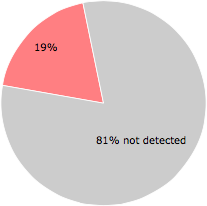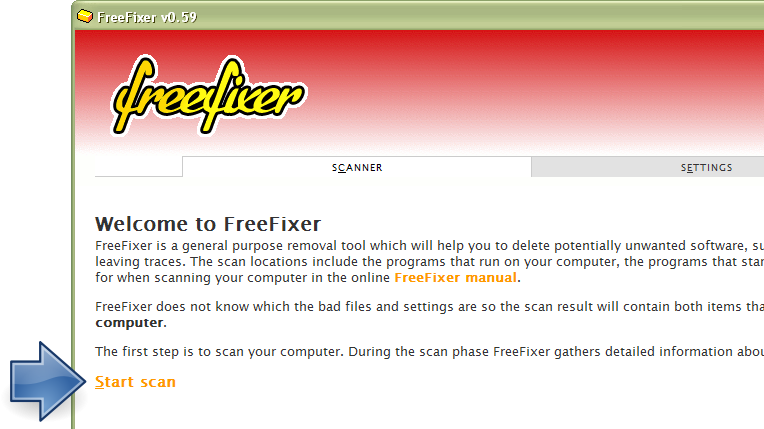What is multikey.sys?
multikey.sys is part of Virtual USB MultiKey and developed by Chingachguk & Denger2k (Elite & SP edition) according to the multikey.sys version information.
multikey.sys's description is "Virtual USB MultiKey"
multikey.sys is usually located in the 'C:\Windows\system32\drivers\' folder.
Some of the anti-virus scanners at VirusTotal detected multikey.sys.
If you have additional information about the file, please share it with the FreeFixer users by posting a comment at the bottom of this page.
Vendor and version information [?]
The following is the available information on multikey.sys:
| Property | Value |
|---|---|
| Product name | Virtual USB MultiKey |
| Company name | Chingachguk & Denger2k (Elite & SP edition) |
| File description | Virtual USB MultiKey |
| Internal name | MultiKey.sys |
| Original filename | MultiKey.sys |
| Legal copyright | Copyright (C) 2004-2009 by Chingachguk & Denger2k |
| Product version | 0.18.1.0 |
| File version | 0.18.1.0 built by: WinDDK |
Here's a screenshot of the file properties when displayed by Windows Explorer:
| Product name | Virtual USB MultiKey |
| Company name | Chingachguk & Denger2k (Elite & SP e.. |
| File description | Virtual USB MultiKey |
| Internal name | MultiKey.sys |
| Original filename | MultiKey.sys |
| Legal copyright | Copyright (C) 2004-2009 by Chingachg.. |
| Product version | 0.18.1.0 |
| File version | 0.18.1.0 built by: WinDDK |
Digital signatures [?]
multikey.sys is not signed.
VirusTotal report
14 of the 73 anti-virus programs at VirusTotal detected the multikey.sys file. That's a 19% detection rate.
| Scanner | Detection Name |
|---|---|
| APEX | Malicious |
| Comodo | ApplicUnwnt@#10g96w1r6bdqy |
| Cybereason | malicious.df09cf |
| Cylance | Unsafe |
| ESET-NOD32 | a variant of Win32/DongleHack.MultiKey.A potentially unsafe |
| Fortinet | Riskware/DongleHack_MultiKey_A |
| GData | Win32.Application.Agent.M7FYKK |
| Ikarus | PUA.DongleHack.Multikey |
| MaxSecure | Trojan.Malware.7164915.susgen |
| McAfee | Generic Trojan.hc |
| McAfee-GW-Edition | Generic Trojan.hc |
| Rising | PUA.DongleHack!8.FFD (CLOUD) |
| Sophos | Generic PUA GI (PUA) |
| VIPRE | Trojan.Win32.Generic!BT |
Sandbox Report
The following information was gathered by executing the file inside Cuckoo Sandbox.
Summary
ERROR: Failed to execute process.
Generic
[
{
"process_path": "C:\\Windows\\System32\\lsass.exe",
"process_name": "lsass.exe",
"pid": 476,
"summary": {},
"first_seen": 1582221185.296875,
"ppid": 376
}
]Signatures
[
{
"markcount": 1,
"families": [],
"description": "This executable has a PDB path",
"severity": 1,
"marks": [
{
"category": "pdb_path",
"ioc": "z:\\develop\\multikey\\mk_18_1\\src\\objfre_wxp_x86\\i386\\MultiKey.pdb",
"type": "ioc",
"description": null
}
],
"references": [],
"name": "has_pdb"
},
{
"markcount": 2,
"families": [],
"description": "The executable contains unknown PE section names indicative of a packer (could be a false positive)",
"severity": 1,
"marks": [
{
"category": "section",
"ioc": "PAGE",
"type": "ioc",
"description": null
},
{
"category": "section",
"ioc": "INIT",
"type": "ioc",
"description": null
}
],
"references": [],
"name": "pe_features"
},
{
"markcount": 2,
"families": [],
"description": "The binary likely contains encrypted or compressed data indicative of a packer",
"severity": 2,
"marks": [
{
"entropy": 7.3940485376242195,
"section": {
"size_of_data": "0x00005400",
"virtual_address": "0x00000480",
"entropy": 7.3940485376242195,
"name": ".text",
"virtual_size": "0x000053b2"
},
"type": "generic",
"description": "A section with a high entropy has been found"
},
{
"entropy": 0.43523316062176165,
"type": "generic",
"description": "Overall entropy of this PE file is high"
}
],
"references": [
"http:\/\/www.forensickb.com\/2013\/03\/file-entropy-explained.html",
"http:\/\/virii.es\/U\/Using%20Entropy%20Analysis%20to%20Find%20Encrypted%20and%20Packed%20Malware.pdf"
],
"name": "packer_entropy"
}
]Yara
The Yara rules did not detect anything in the file.
Network
{
"tls": [],
"udp": [
{
"src": "192.168.56.101",
"dst": "224.0.0.252",
"offset": 710,
"time": 1.0167438983917236,
"dport": 5355,
"sport": 53595
},
{
"src": "192.168.56.101",
"dst": "224.0.0.252",
"offset": 1038,
"time": -0.09953904151916504,
"dport": 5355,
"sport": 55314
},
{
"src": "192.168.56.101",
"dst": "239.255.255.250",
"offset": 1366,
"time": 1.0471549034118652,
"dport": 3702,
"sport": 49152
}
],
"dns_servers": [],
"http": [],
"icmp": [],
"smtp": [],
"tcp": [],
"smtp_ex": [],
"mitm": [],
"hosts": [],
"pcap_sha256": "fa66787894eee1e876a82c4567e1e087f3353d62d6690651443d46bdc4bd2324",
"dns": [],
"http_ex": [],
"domains": [],
"dead_hosts": [],
"sorted_pcap_sha256": "e9d887f3e377fa1b02e6afb781537d11cfbb470a0f287c423e8d96c8dff96a8f",
"irc": [],
"https_ex": []
}multikey.sys removal instructions
The instructions below shows how to remove multikey.sys with help from the FreeFixer removal tool. Basically, you install FreeFixer, scan your computer, check the multikey.sys file for removal, restart your computer and scan it again to verify that multikey.sys has been successfully removed. Here are the removal instructions in more detail:
- Download and install FreeFixer: http://www.freefixer.com/download.html
- When the scan is finished, locate multikey.sys in the scan result and tick the checkbox next to the multikey.sys file. Do not check any other file for removal unless you are 100% sure you want to delete it. Tip: Press CTRL-F to open up FreeFixer's search dialog to quickly locate multikey.sys in the scan result.



 C:\Windows\system32\drivers\multikey.sys
C:\Windows\system32\drivers\multikey.sys 
- Restart your computer.
- Start FreeFixer and scan your computer again. If multikey.sys still remains in the scan result, proceed with the next step. If multikey.sys is gone from the scan result you're done.
- If multikey.sys still remains in the scan result, check its checkbox again in the scan result and click Fix.
- Restart your computer.
- Start FreeFixer and scan your computer again. Verify that multikey.sys no longer appear in the scan result.
Other files also named multikey.sys
multikey.sys (38 votes)
Hashes [?]
| Property | Value |
|---|---|
| MD5 | c3bbef8614b90c31367d9df8d3b81b4c |
| SHA256 | f3533d7f17e2b8401944c569abdfb809d009e5ebd096bfa266f676390bc068cf |
What will you do with multikey.sys?
To help other users, please let us know what you will do with multikey.sys:
What did other users do?
The poll result listed below shows what users chose to do with multikey.sys. 33% have voted for removal. Based on votes from 3 users.

NOTE: Please do not use this poll as the only source of input to determine what you will do with multikey.sys. Only 3 users has voted so far so it does not offer a high degree of confidence.
Comments
Please share with the other users what you think about this file. What does this file do? Is it legitimate or something that your computer is better without? Do you know how it was installed on your system? Did you install it yourself or did it come bundled with some other software? Is it running smoothly or do you get some error message? Any information that will help to document this file is welcome. Thank you for your contributions.
I'm reading all new comments so don't hesitate to post a question about the file. If I don't have the answer perhaps another user can help you.
No comments posted yet.


